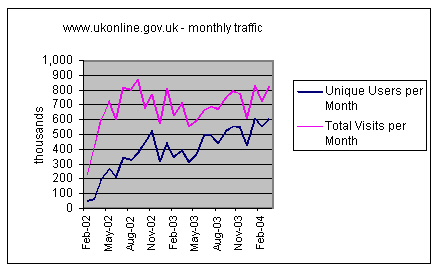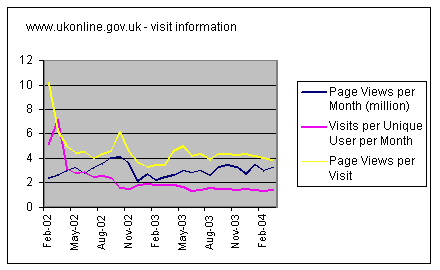Mailing Number 33 - 13 April 2004
185 subscribers on publication date. 12956 page-views since publication.
Please send
me feedback directly about these mailings, concerning content,
design, or material I ought to feature in the future. You can also
send me anonymous feedback using the radio buttons at the bottom of this
page. If you think others will find these mailings useful or interesting,
you can use this form to tell them.
| Site Home ||
Mailings Home
|| News/comment | Resources | Oddments | Feedback |
News/comment
Learning Styles for Post 16 Learners. What do we know? Enough to know that the use of learning styles inventories and the like is often deeply flawed, according to new research by the University of Newcastle, published in summary by the Learning and Skills Development Agency.
..... these instruments are currently being used very widely in Higher and Further Education by tutors keen to differentiate student learners; and they are encouraged to do so by their initial training and by the inspectorate. Some of the best known and widely used instruments have such low reliability, poor validity and negligible impact on pedagogy that we recommend in our review that their use in research and in practice should be discontinued.
LSDA will be publishing 2 full reports next month, which I will reference in this Mailing when they are available. In the meantime you will have to make do with the summary report and bibliography.
Towards a Unified e-Learning Strategy - analysis of consultation responses. On 8 April, the Department for Education and Skills (DfES) published an analysis of the 430 responses it received to last July's consultation document. There are no bombshells. The version currently (13/4/2004) on the DfES site lacks the references to appendices, including case studies, which were contained in the version initially released by DfES.
British Standard for recommended best practices and use of accessibility metadata. BSI has set up a new panel to develop a new standard on e-learning accessibility. Andy Heath of Sheffield Hallam University has been appointed to convene the panel which will oversee the work. According to BSI, the first steps in this work will be to scope the project and prepare a proposal for consideration by BSI. To this end an open meeting is being held at Sheffield Hallam University on Monday 24 May at to begin work on the project. More details are contained in BSI's summary [160 kB PDF].
Dokeos. I mentioned Claroline, a Belgian Open Source learning management system in Fortnightly Mailing Number 5 (November 2002). Claroline has now been renamed dokeos, and a business has been set up to develop the product, support it, train people in its use, and to provide hosting (at 60 Euros per month upwards). A "Scorm compliant" version 1.5 of dokeos was released earlier this month. According to the dokeos web site there is an O'Reilly book covering a wide range of dokeos topics, from installation to customization, with "pedagogical tips" as well. However, on 13/4/2004 I could find no evidence of this book on the O'Reilly web sites. (The publication of an O'Reilly book to support an Open Source product is usually a sign that that product has a future.)
UK Online. In Fortnightly Mailing Number 22 (September 2003), I published some analysis I had done of traffic on the UK Government's flagship UKonline web site, showing that the monthly number of unique users (total visits) had stabilised at about 400,000 (675,000).
Using the latest raw data is available in "site traffic figures for www.ukonline.gov.uk" [33 kB DOC], I have updated the graphs to the end of March 2004. These show that total traffic has hovered around 3 million page views per month for several months, with a gradual increase in the number of unique users per month offset by a fall both in the number of page views per visit, and in the number of visits per month made by each unique user.

Graph 1 - Usage. Monthly unique users (total visits) increasing from 44,000 (228,000) in February 2002, to 522,000 (771,000) in November 2002, and reaching 601,000 (824,000) in March 2004.

Graph 2 - Visitor behaviour. Total monthly page views increasing from 2.3 million in February 2002 to over 4 million in October 2002, and fluctuating at around 2.5 million for the last 6 months. (UK use of the BBC web site is getting on for 100 times greater.) The number of monthly visits per unique user has dropped steadily from 7 to less than 1.4. The number of page views per visit has dropped from 10 to 4 over the same period.
MIT OpenCourseWare - 200 more courses published. MIT announced on 1 April that the OpenCourseWare initiative has published 200 new courses to bring to 701 the total number of courses available at the OpenCourseWare web site.
NHSU (and UKeU). The UK National Health Service University (NHSU) web site is worth looking at, partly for its structure and feel, and partly for the openness with which NHSU seems to be intending to operate, if the Board Papers area is anything to go by. The following paragraph from the Chief Executive's 31 March report to the Board is evidence that adverse developments in the flagship UK eUniversity (see links below) are being felt elsewhere in the public sector.
Because of the position which has arisen with the HEFCE-sponsored UK e-Universities project, which is currently being re-structured and in view of the fact that the Virtual campus is likely to be the single largest project that NHSU undertakes and which the Board can feel confident about, I have instigated an additional element of audit and review of the proposed NHSU Virtual Campus, before bringing a proposal to the Board for consideration. This will be a confidential review of NHSU's policy, processes and preparedness and of any relevant issues arising from the situation of UKeU from a senior independent figure with acknowledged professional expertise in this domain.
NHSU is also consulting on its e-learning strategy, via a discussion paper and online questionnaire. The closing date for responses is 21 May 2004, despite the fact that the NHSU site suggests the strategy will be finalised by April.
UKeU links:
Effective Practices. Another eclectic and interesting batch of online learning case studies has been added to the Sloan Consortium's excellent effective practices web site. John Sener, who edits the site, writes:
What effective practices do you or your institution have that others would benefit from knowing about? Share what you do best by posting a brief summary that will be useful to other practitioners. Click here to add an effective practice in one of the pillar areas. You'd like to submit an effective practice but just can't find the time? Then just drop me an e-mail (john.sener"AT"sloan-c.org) with a 1-3 sentence description of your EP and a link to relevant background documentation -- URL(s), attached documents, published findings, etc. -- and I'll write up a description, send it to you for your review, then pass it on to the relevant editor for posting.
New JISC Legal Information Service web site. The Joint Information Systems Committee (JISC) Legal Information Service has a new name "JISC Legal", and a new website. A good way into the site is its site map. According to JISC, the website has been reorganised to make navigation and searching material easier for the user.
Evaluation, Repair, and Transformation Tools for Web Content Accessibility. An area of the World Wide Web Consortium (W3C) site containing a collection of information about evaluation, repair, and transformation tools useful for Web content developers and Web users who wish to make the Web more accessible. Last updated in October 2003, but still of value.
W3C Link Checker. W3C has just released the first standalone version of its link checker, an online and downloadable tool to test whether the links on a web page are properly formed, and if they are not, what needs doing about them.
IDeA Learning Pool. The "Improvement and Development Agency" (IDeA) is an English local government agency which works to help all councils improve so that they match the standards of the best. IDeA has recently established Learning Pool which it describes as a new e-learning service that brings local councils together to create, share and access targeted e-learning for local government. The interesting content (assuming it is interesting!) on the site is not open to the public, but the resources and articles section of the site certainly conveys Learning Pool's ambitious intentions.
DTI computer security guides. Useful looking guides, from the Department of Trade and Industry (DTI), aimed at small organisations, but relevant to larger ones, concerning several different aspects of IT security. A goodd way to avoid reinventing the wheel when and if you have a policy document to write.
Iraq coalition casualty count. Michael White's Iraq casualty count site, which I found from the previously featured Rational Enquirer, is stunning both for its grim content, and for the exemplary manner in which you can use it to render data in different ways.
If you have found this page from my web site, or with a search tool, and want to receive your own mailing directly from now on, you can sign up for a subscription.
If you are a subscriber, and no longer wish to be, please use this form to unsubscribe.
If you think others will find these mailings interesting,
you can use this form to tell
them.
Last updated - 13/4/2004; © Seb Schmoller, but licensed under
a Creative Commons
License.
| Mailings
Home || Site Home
| Privacy
|

|